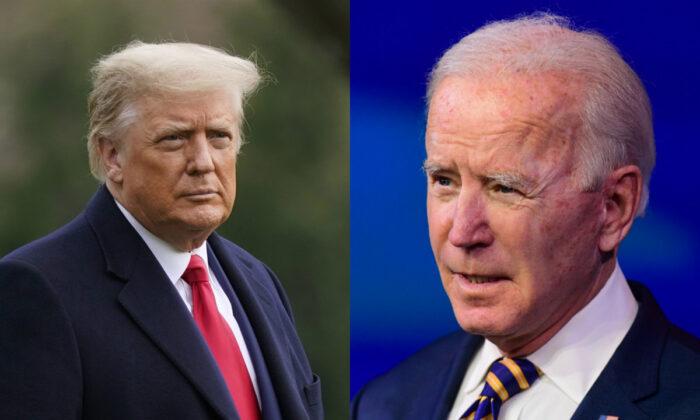A report from the U.S. intelligence community suggests that a minority of intelligence officials believed that the Chinese Communist Party (CCP) did, in fact, attempt to hinder former President Donald Trump’s chances in the 2020 election, while reporting that the CCP did not “deploy interference efforts.”
The report further asserted that the CCP “sought stability in its relationship with the United States and did not view either election outcome as being advantageous enough for China to risk blowback if caught,” while intelligence officials suspected that “Beijing probably believed that its traditional influence tools, primarily targeted economic measures and lobbying key individuals and interest groups, would be sufficient to achieve its goal of shaping U.S. policy regardless of who won the election. We did not identify China attempting to interfere with election infrastructure or providing funding to any candidates or parties.”
But the report also indicated that some U.S. intelligence officials believe the CCP tried to undermine Trump.
“The National Intelligence Officer for Cyber assesses that China took at least some steps to undermine former President Trump’s reelection chances, primarily through social media and official public statements and media,” says the report in its minority view section. “The NIO agrees with the IC’s view that Beijing was primarily focused on countering anti-China policies, but assesses that some of Beijing’s influence efforts were intended to at least indirectly affect U.S. candidates, political processes, and voter preferences, meeting the definition for election influence used in this report. The NIO agrees that we have no information suggesting China tried to interfere with election processes. The NIO has moderate confidence in these judgments.”
The short paragraph is referring to the National Intelligence Officer (NIO) for Cyber Issues on the National Intelligence Council, which leads the U.S. intelligence community in its cyber analysis and analyzes challenges to elections.
“We assess that Beijing’s risk calculus against influencing the election was informed by China’s preference for stability in the bilateral relationship, their probable judgment that attempting to influence the election could do lasting damage to U.S.-China ties, and belief that the election of either candidate would present opportunities and challenges for China,” the majority view stated.





